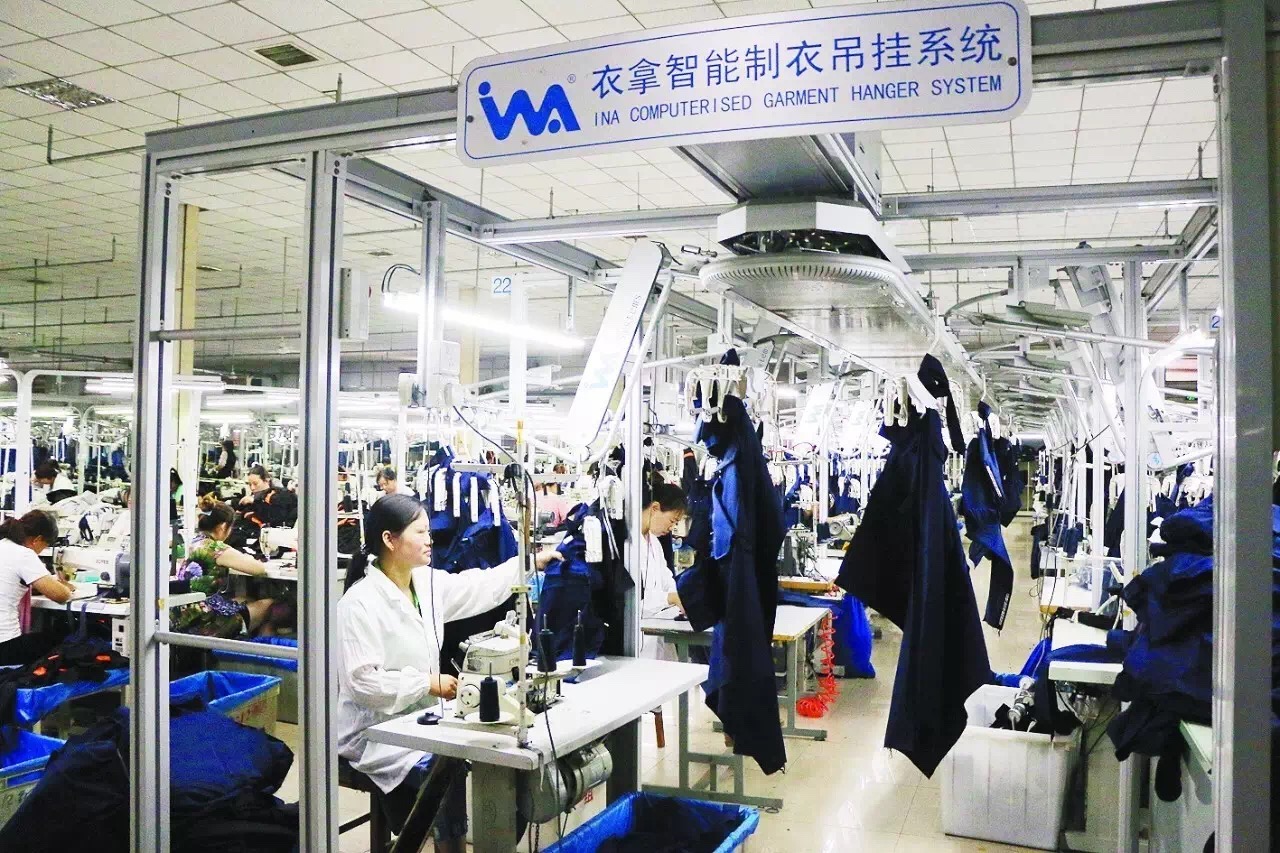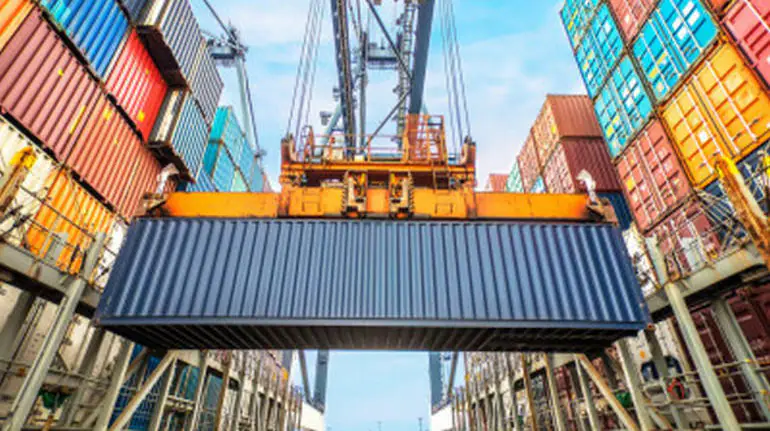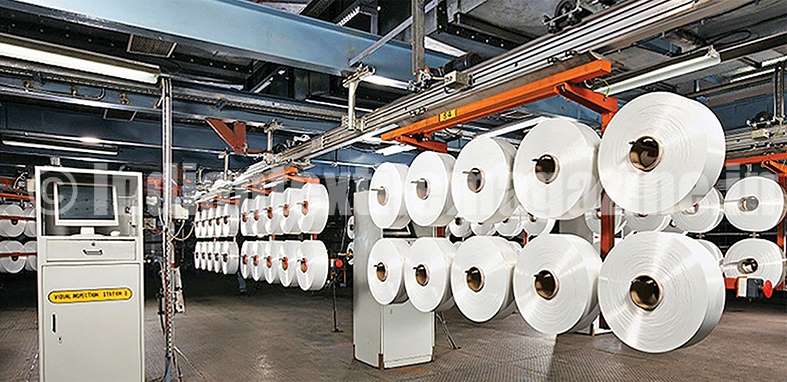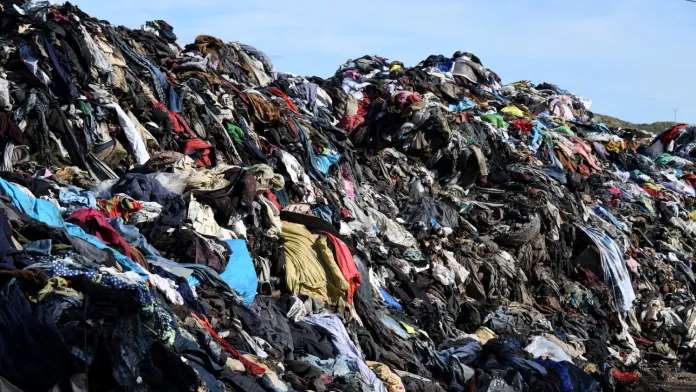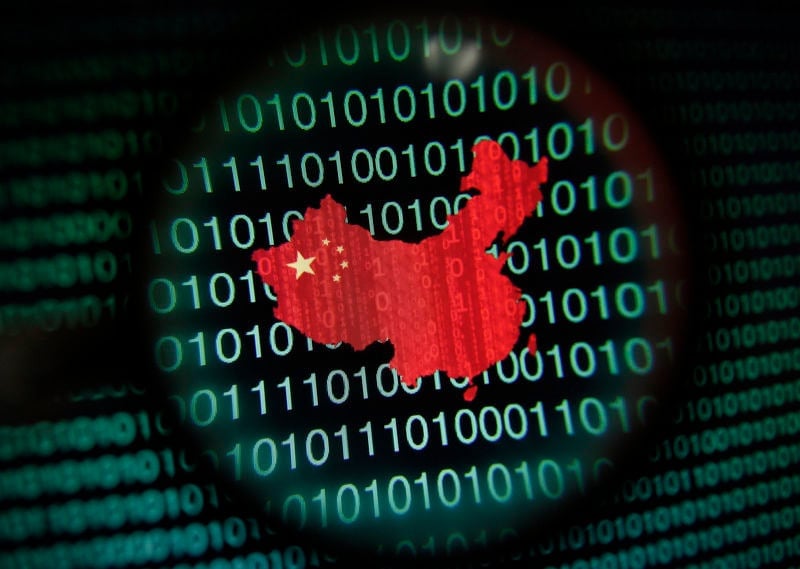FW
Leading Vietnamese fashion brand, Canifa, has seen a remarkable 54 per cent jump in app conversion rates following the implementation of CleverTap, an all-in-one engagement platform. With over 100 physical outlets and a robust online presence, Canifa aimed to enhance customer journeys, particularly in their mobile application shopping experience. Previous tools used by Canifa led to data silos, hindering real-time personalization, posing a challenge in winning over tech-savvy consumers in Vietnam's competitive fashion market.
CleverTap's integrated approach resolved these issues by unifying data sources, enabling Canifa to create detailed customer profiles and glean granular insights into preferences. Leveraging various engagement channels such as SMS, Push Notifications, and In-App messages, CleverTap ensured consistent user interaction, crucial for establishing top-of-mind recall.
The benefits reaped post-CleverTap implementation are significant:
1. 7 per cent increase in revenue per user over a 60-day period
2. 7 per cent increase in retention over a 60-day period
3. 50 per cent surge in conversion rate month-over-month
4. 4 per cent increase in stickiness over a 60-day period
5. 20 per cent rise in retention rate
6. Notably, a staggering 54 per cent boost in app conversion rate
Hoang Quoc Khanh, MarTech Expert at Canifa, praised CleverTap for enabling personalized experiences at scale, resulting in unprecedented growth. Sidharth Pisharoti, Chief Revenue Officer at CleverTap, emphasized the platform's ability to positively impact business outcomes, citing Canifa's impressive revenue increase as a testament.
CleverTap, renowned for its AI-driven capabilities, offers a comprehensive engagement solution trusted by global brands, empowering businesses to orchestrate personalized customer journeys effectively.
Cotton prizes in Brazil dipped in January despite being outside the harvest season, according to a report by the Center for Advanced Studies on Applied Economics (CEPEA).
A few of the key factors that drove this decline included, the reentry of industry players into the market with low prices, discounts offered by some sellers to gain quick cash., premiums paid by buyers with immediate needs despite overall downturn and focus on exports by companies due to rising international prices and strong demand.
From December 28, 2023, to January 31, 2024, the CEPEA/ESALQ Index for cotton decreased by 0.32 per cent, settling at BRL 3.9874 per pound on January 31, CEPEA said in its latest fortnightly report on the Brazilian cotton market.
According to data released by the Instituto Mato-grossense de Economia Agropecuária's (IMEA) on January 22, 81.53 per cent of the 2022-23 season's cotton had been traded in Mato Grosso, Brazil's largest producer.
As per data by the Secretariat of Foreign Trade at the Ministry of Economy (SECEX), Brazil’s cotton exports incrased by 93.9 per cent to 240.4000 tons in January 2024 compared to January 2023, the third-highest volume shipped in the month.
The Clothing Manufacturers Association of India (CMAI) has expressed concerns about the recent amendment to the Income Tax Act, which aims to address delayed payments to small and medium enterprises (MSMEs). While acknowledging the government's efforts, the CMAI argues that the amendment has unintended consequences for the domestic garment industry.
CMAI believes, the amendment allows MSMEs to claim a deduction on their income tax for delayed payments received from buyers. It leads to order cancellations from retailers due to the increased financial burden.
To avoid this, CMAI recommends a delayed implementation of the amendment. It advocates for a phased decrease in credit periods over three years, reaching 45 days by 2027.
The association also recommends excluding payments between MSMEs from the amendment's scope. It urges for a general reduction in credit periods to 45 days.
CMAI opines, while intended to help MSMEs, the amendment creates financial strain for the garment industry. For its effective implementation, the government should make gradual changes and exemptions. It should adopt a shorter credit period to promote transparency and efficiency
Overall, the CMAI urges the government to consider their recommendations and find a solution that balances the needs of both MSMEs and the garment industry.
Textile giants HKRITA and Seiko Epson are joining forces to develop a revolutionary recycling program that aims to breathe new life into discarded fabrics.
This partnership builds upon a 2023 agreement between the two organisations. Taking a step forward, the companies are applying HKRITA's expertise in textile recycling systems to Epson's innovative dry fiber technology. This technology, previously used to transform waste materials into water-free paper, will now tackle the challenge of defibrating complex fabrics like those blended with elastic or tightly woven.
HKRITA will play a crucial role by providing technical support throughout the recycling process and evaluating the quality of the recycled materials. Edwin Keh, CEO, HKRITA, says, this collaboration allows us to develop a truly comprehensive approach to sustainability, one that transcends industry limitations and opens doors to new opportunities."
Satoru Hosono, Technology Development, Epson, adds, the company’s collaboration with HKRITA aims to use a unique dry fiber technology to give new life to clothes and fabrics that would otherwise end up in landfills.
This partnership promises to extend the lifecycle of materials by recycling discarded fabrics and address the growing demand for recycled textiles.
In a bid to celebrate excellence and innovation in the global textile sector, the International Textile Manufacturers Federation (ITMF) announces the launch of the ITMF Awards 2024.
This prestigious event features three distinct categories: the ITMF Sustainability & Innovation Award, the ITMF International Cooperation Award, and the ITMF Start-up Award. Companies and organizations eager to showcase their contributions are invited to submit applications by April 30, 2024.
The spotlight will shine on the winners during the ITMF Annual Conference 2024, slated for September 8-10 in Samarkand, Uzbekistan. Notably, victorious entities will have the platform to present their innovative projects at this esteemed gathering.
Founded in 1904, ITMF serves as a global nexus for the textile and related industries, boasting a membership that spans more than 40 countries and encompasses nearly 90 per cent of global production.
The Lenzing Group, a global leader in specialty fibers for textiles and nonwovens, has reaffirmed its commitment to corporate transparency and climate action by earning a coveted spot on CDP's prestigious ‘A’ List for the third consecutive year. Out of more than 21,000 evaluated companies, Lenzing is among the elite ten achieving a triple ‘A’ rating for its performance in climate change mitigation, forest conservation, and water security.
CDP, renowned as the gold standard in environmental reporting, acknowledges Lenzing's alignment with the Task Force on Climate-Related Financial Disclosures (TCFD) and its significant contribution to fostering a sustainable, zero-carbon economy. With over 740 financial institutions representing trillions in assets leveraging CDP data for investment decisions, Lenzing's recognition underscores its pivotal role in driving environmental stewardship across industries.
Stephan Sielaff, CEO of the Lenzing Group, expressed pride in the company's sustainable initiatives, emphasizing the collective efforts of Lenzing's workforce in advancing sustainability goals. Sielaff highlighted Lenzing's relentless pursuit of a circular business model, emphasizing the need for industry-wide collaboration to effect meaningful change.
CDP CEO Sherry Madera commended Lenzing and other A List companies for their commitment to environmental transparency and urged continued action towards achieving a net-zero, nature-positive future. Recognizing the importance of comprehensive data in driving sustainability strategies, Madera underscored the pivotal role of A List companies in catalyzing industry-wide transformation.
Lenzing's sustainability strategy, anchored in decarbonization, responsible sourcing, and circularity, aligns with the United Nations Sustainable Development Goals (SDGs). Through sustainable raw material procurement and investments in renewable energy, Lenzing remains steadfast in its pursuit of environmental excellence.
The forthcoming publication of Lenzing's Annual and Sustainability Report 2023 on March 15, 2024, will provide a comprehensive overview of the company's sustainability progress and future commitments.
The Indian Textiles & Clothing (T&C) sector, a significant contributor to the country's exports, is poised for further growth with the extension of export promotion schemes. Despite challenges, including the recent Covid-19 pandemic, the sector maintained its position, contributing approximately 8.0 per cent to India's overall exports.
During the fiscal year 2021-22, the sector experienced a notable surge in exports, attributed to pent-up demand following the second wave of the pandemic. To sustain this momentum and enhance global competitiveness, the government has implemented various measures, including revising existing export schemes such as Duty Drawback, IES, RoSCTL, and RoDTEP.
A key initiative is the Rebate of State and Central Taxes and Levies (RoSCTL) Scheme, which aims to refund blocked duties and levies on export products, ensuring a level playing field for Indian exporters in international markets. Originally set to expire on March 31, 2020, the scheme has been extended multiple times and is now valid until March 31, 2026, following approval by the Union Cabinet.
SK Sundararaman, Chairman of The Southern India Mills’ Association (SIMA), commended the government's decision, emphasizing its importance in sustaining the competitiveness of Indian textile exporters. He highlighted the scheme's role in facilitating long-term export contracts and supporting exporters amidst challenges such as declining foreign buyer orders due to economic recessions in key markets like the EU.
Furthermore, Sundararaman noted the scheme's benefits for exporters importing fabric, a major raw material, through the Advance Authorization Scheme. He underscored the significant enhancements under the RoSCTL scheme, which provide increased refunds for various textile products, fostering growth and enabling the sector to work towards the government's ambitious export target of USD 100 billion by 2030.
The extension of the export supportive scheme not only bolsters the textile industry but also signals a visionary approach to attract investment and generate employment opportunities, reinforcing India's position as a global textile hub.
Green Theme Technologies (GTT) is revolutionizing the Japanese textile industry with its PFAS-free and water-free EMPEL textile finishing platform. EMPEL offers unparalleled performance and long-term sustainability, attracting the attention of key players like YKK, a global leader in zipper manufacturing.
YKK has already integrated EMPEL technology into its manufacturing process and is promoting it globally through its new DynaPel collection. The innovative solution not only enhances performance but also aligns with the growing demand for eco-friendly alternatives in the textile market.
GTT's expansion into Japan is facilitated by the Japan External Trade Organization (JETRO), underscoring the government's commitment to fostering international trade and investment. Approved for JETRO's Invest Japan Support Program, GTT is poised to establish a presence in Japan, leveraging the J-Bridge Program to cultivate partnerships with local stakeholders.
Martin Flora, GTT's President of Business Development, emphasizes Japan's reputation for innovation and quality in textiles. He highlights EMPEL as the natural choice for Japanese manufacturers seeking clean, high-performance solutions for water repellency, stain resistance, and anti-wicking properties.
YKK's adoption of EMPEL in its DynaPel water-repellent zipper reflects the industry's shift towards sustainability and innovation. Recognized with the prestigious ISPO Textrends Best Product Award, YKK's innovative approach eliminates the need for PU film, enhancing usability and compatibility with garment recycling systems.
GTT's collaboration with Japanese industry leaders signifies a significant step towards a more sustainable and competitive textile landscape, demonstrating the potential for green technology to drive positive change on a global scale.
A major player in home textiles, flooring and advanced textiles, Welspun Living has appointed Sunil Duggal as an independent director, effective January 31, 2024.
A highly accomplished leader, Duggal boasts a distinguished career spanning decades, most notably his 17-year tenure as CEO of Dabur India, making him the company's longest-serving CEO.
A graduate of BITS Pilani and IIM Calcutta, Duggal is an expert in consumer-centric leadership and brand building. He has held several leadership positions at Dabur, and has also chaired prominent committees like the Indo-Turkish JBC and the FICCI Committee on Food Processing. His achievements include being recognised as ‘FMCG CEO of the Year’ thrice and receiving the ‘Distinguished Alumnus Award’ from IIM Calcutta.
Dipali Goenka, Managing Director and CEO, Welspun Living says, Duggal’s consumer-centric approach and experience in building strong brand connections perfectly resonate with Welspun's goals. His appointment signifies a significant step for Welspun Living, bringing onboard a leader with a proven track record and valuable insights to fuel the company's future endeavors.

The Production Linked Incentive (PLI) scheme, a government initiative to boost domestic manufacturing, has got mixed results in the Indian textile and apparel industry. While ambitious in its goals, the scheme's adoption by industry players has been sluggish, raising questions about its effectiveness in this crucial sector.
PLI in textiles: A promising start, stuttering steps
Launched in September 2021, the PLI scheme for textiles offered incentives worth Rs 10,683 crore over five years for investments in man-made fiber (MMF) apparel, fabrics, and technical textiles. The aim was to attract investments of Rs 19,000 crore and increase production by Rs 3 lakh crore. Initial response seemed positive, with major players like Reliance Industries and Welspun expressing interest.
However, implementation hurdles and industry concerns have dampened enthusiasm. As of January 2024, only a handful of companies have applied for the scheme, and disbursement of incentives has been slow. As an expert explains, PLI application process is like a labyrinth, especially for smaller players. Simplifying it and offering handholding support are crucial.
And Anita Dongre, Fashion Designer points out the initial PLI scheme focused heavily on MMF, neglecting segments like cotton and home textiles, which are the backbone of our industry. PLI-2 seems like a step in the right direction.
Reasons for the slowdown
Several factors have contributed to the PLI's slow adoption in textiles.
Complex application process: As a stakeholder points out, the application process is like climbing Mount Everest. The documentation is extensive, and approvals take forever. Smaller players like don't have the resources to navigate this bureaucracy.
Stringent eligibility criteria: The minimum investment thresholds are too high for many players. Recovering from the after effects of a pandemic, and they can't risk such large investments without a clear guarantee of returns.
Unclear incentive calculation and disbursement: Moreover there's a lot of ambiguity about how the incentives are calculated and disbursed, points out a textile industry consultant. This lack of transparency creates uncertainty and delays investment decisions.
Existing infrastructural bottlenecks: Issues like power shortages, unreliable logistics, and high import duties on raw materials are major concerns among textile industry players. These add our production costs and erode the appeal of PLI benefits.
Limited scope of PLI-1: The initial PLI scheme (PLI-1) focused on specific segments like MMF and technical textiles, leaving out major segments like cotton and home textiles, which form a larger part of the industry.
PLI in Textiles (as of Jan 2024)
| Parameter | Data | Source |
| Total Incentive Outlay | ₹10,683 crore | PIB |
| Expected Investment | ₹19,000 crore | PIB |
| Expected Production Increase | ₹3 lakh crore | PIB |
| Applications Received | Handful | Industry sources |
| Incentive Disbursed | Minimal | Industry sources |
| Parameter | Target (PLI-1) | Achievement (as of Dec 2023) | Gap |
| Investment | Rs. 19,000 crore | Rs. 3,800 crore | 80% |
| New Jobs | 7.5 lakh | 1.5 lakh | 80% |
| Factor | Impact on PLI Adoption |
| Limited Uptake | Slow progress in achieving scheme targets |
| Meager Payout | Raises questions about scheme's effectiveness |
| Complex Eligibility | Creates entry barriers for SMEs |
| Uncertain Incentive Structure | Discourages potential investors |
| Lack of Infrastructure Support | Hinders production scalability |
| Global Competition | Makes price and quality competitiveness challenging |
Some gained while others lost
Despite its drawbacks some companies, rather big players, managed to make the most of the PLI scheme. Reliance Industries for example, received PLI approval for Rs 5,000 crore investment in polyester filament yarn and fabric manufacturing, showcasing the potential for large players. "The PLI scheme provided the push we needed to expand our domestic manufacturing footprint," says a company spokesperson.
Similarly, Welspun applied for PLI benefits for technical textiles, highlighting the interest in niche segments. "The scheme has the potential to boost India's technical textile industry, which has strategic importance," says the company CEO.
However, smaller players remain hesitant due to the perceived complexity and limited applicability of the scheme. "We're hopeful that PLI-2 will address our concerns," says a representative of a textile industry association representing small and medium enterprises.
PLI-2: Hope for brighter prospects
The launch of PLI-2 in December 2023 aims to address industry concerns by broadening the scope and including cotton textiles, home textiles, and select apparel segments. PLI1 scheme excluded cotton textiles, a major concern for this segment, which accounts for over two-thirds of the industry's production. However, PLI-2 has corrected this. Similarly, home textiles segment, known for its export potential, was initially left out. PLI-2's inclusion offers an opportunity for growth. The complex application process and high minimum investment thresholds pose challenges for smaller players, who are the lifeblood of the industry. PLI-2's relaxed criteria offer some hope.Reducing paperwork and streamlining approvals will work for its benefit. Offering special incentives for smaller players with lower investment thresholds and higher incentive rates in PLI-2 will help in greater adoption.
However, experts are cautiously optimistic about PLI-2's impact. As an expert points out "PLI-2 addresses some key concerns, but the success hinges on its implementation. Timely incentive disbursement and addressing infrastructural bottlenecks are crucial." On similar lines Radhika Chopra, Economist says, the broader scope of PLI-2 has the potential to attract wider participation, but its effectiveness depends on attracting large investments, especially in areas like cotton textiles.
They also suggest for better implementation certain steps need to be take like: streamlining the application process and eligibility criteria; ensuring timely and transparent incentive disbursement; addressing infrastructural bottlenecks and reducing import duties on raw materials; handholding support to smaller players.
Learning from others
India's PLI scheme draws inspiration from similar initiatives in other countries. For example, China's Made in China 2025 plan has been successful in boosting its textile industry, but concerns about labor practices and environmental impact exist. And Vietnam's textile industry has grown rapidly due to free trade agreements and a supportive government, but infrastructure challenges remain. India too can learn from these examples by focusing on ethical and sustainable practices; investing in infrastructure development; creating a skilled workforce.
The textile and apparel industry is crucial to India's economy, employing millions and contributing significantly to exports. A well-designed and implemented PLI scheme has the potential to boost the sector's competitiveness and create jobs. Addressing industry concerns, ensuring a smooth implementation process, and learning from global examples are crucial steps to ensure the PLI scheme's success. Only then can it truly weave a story of growth and transformation for India's textile industry.



